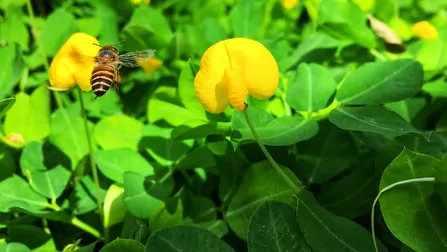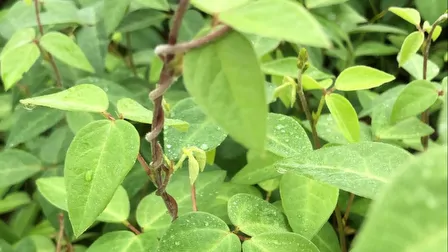
Indicação
O amendoim forrageiro é indicado em consorcio com forrageiras de porte baixo. Possui boa palatabilidade e qualidade nutricional (15 a 22% PB). Indicado para regiões com altas precipitações. Por apresentar boa cobertura do solo é recomendado como cobertura vegetal em adubação verde e também em paisagismo, pois apresenta flores amarelas.
Arachis pintoi cv. Amarillo MG100
Solos de baixa fertilidade
Pastejo consorciado com gramínea forrageira. Cobertura vegetal em áreas de pomares e 22 outros cultivos perenes. Jardinagem
5 a 8 t/ha/ano de matéria seca (M.S.)
15 a 22%
62 a 73%
Perene
Utilização e Manejo
O amendoim forrageiro em pastagens consorciadas com gramíneas, possui boa aceitação pelos animais. Nas áreas consorciadas, é recomendado o plantio em faixa de 3 metros aproximadamente do amendoim forrageiro a cada 15 metros de faixa da pastagem. Essa integração é mais indicada com gramíneas de porte baixo, para evitar a competição por luminosidade. Indicado para regiões com altas precipitações. Por apresentar boa cobertura do solo é recomendado como cobertura vegetal em adubação verde entre linhas de culturas como café, laranja e outras frutíferas, e também em paisagismo devido ao aspecto agradável das folhas e flores amarelas.
Origem
América do Sul
Características Morfológicas
Leguminosa de ciclo perene, de crescimento rasteiro, estolonífera, possui raíz pivotante, folhas alternadas composta de quatro folíolos, bastante agressiva, produzem sementes sob a superfície do solo e pouco exigente em fertilidade do solo.
